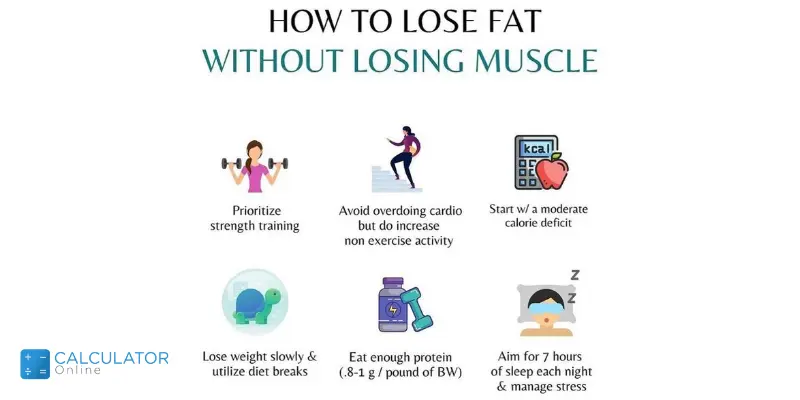How Fast Can You Lose Fat Without Losing Muscle?
No doubt, there are a number of advantages to getting worthy of lean, but it’s always a challenge. The solution to that problem is to get it over as quickly as possible. The faster you achieve your goal of body fat percentage, the faster you can eat more and easily focus on either keeping your physique or building muscle again. On the other hand, whether you do not desire to lose muscle, crash your hormones, or monitor your strength in the gym, then you have heard it can occur when you lose weight too fast.
The investigators had 15 elite male track-and-field athletes set down their diet and training for 4 days. Then, the investigators told them to follow a high-protein, low-calorie diet for 4 weeks. They divide the athletes into 2 groups:
-
First group followed a diet that delivered 300 calories fewer than they burned every day (a 10% deficit).
-
Similarly, the Second group followed a diet that delivered 750 calories fewer than they burned every day (a 25% deficit).
After calculation, we conclude that all the were about 10% body fat. This made it more likely they would lose muscle mass. To save it, everyone should eat about 1 gram of protein per pound of body weight per day and eat fewer carbs and fats to reduce their calorie intake. All the athletes preserved the same training program that is entirely used before study. It will help to stick with the diet, the investigators worked with the athletes to make meal plans that are based on their preferred food choices. In simple words, they act in accordance with standard flexible dieting rules. Before and after the study, the investigators calculated:
1. Body Composition:
They measured body composition with the help of a DXA machine. It uses x-rays to measure someone’s lean body mass, fat mass, and bone mineral density. However, it’s not perfect as it is assumed to be the gold standard to measure changes in body fat and muscle mass.
2. Hormone Levels:
It includes testosterone, cortisol, and sex hormone-binding globulin. Keep in mind that calorie limitation often decreases testosterone levels in men that can cause muscle loss, poor mood, and low energy levels. Well, increased cortisol levels indicate the total body stress, and if they stay high long enough then it may contribute to muscle loss.
3. Athletic Performance:
The investigators measured countermovement jump performance as it is a good monitor of explosive power and 20-meter sprint performance which is a measure of speed. Apart from that, the investigators also offered multivitamin supplements, and forbade anyone from using creatine. The reason is that creatine is used for increasing lean body mass and performance.
Final Results:
On the result day, both groups preserved their muscle mass and performance but the group who carried a 750 calorie deficit lost 4 times as much fat after 4 weeks of dieting. However, you do not need to get too excited because the differences between both groups weren’t statistically essential. Therefore, it was a high enough chance that the results were due to random variation because the investigators couldn’t say the different diets were responsible for the different results. Although there is an issue to make the conclusion because only 7 people were involved in the 300 calorie deficit group while 8 people in the 750 calorie deficit group. In case there are a lot of people in the research, then the results would have been statistically significant.



